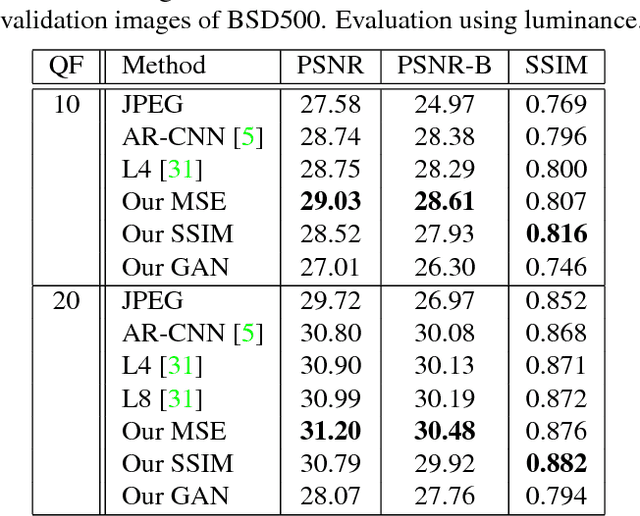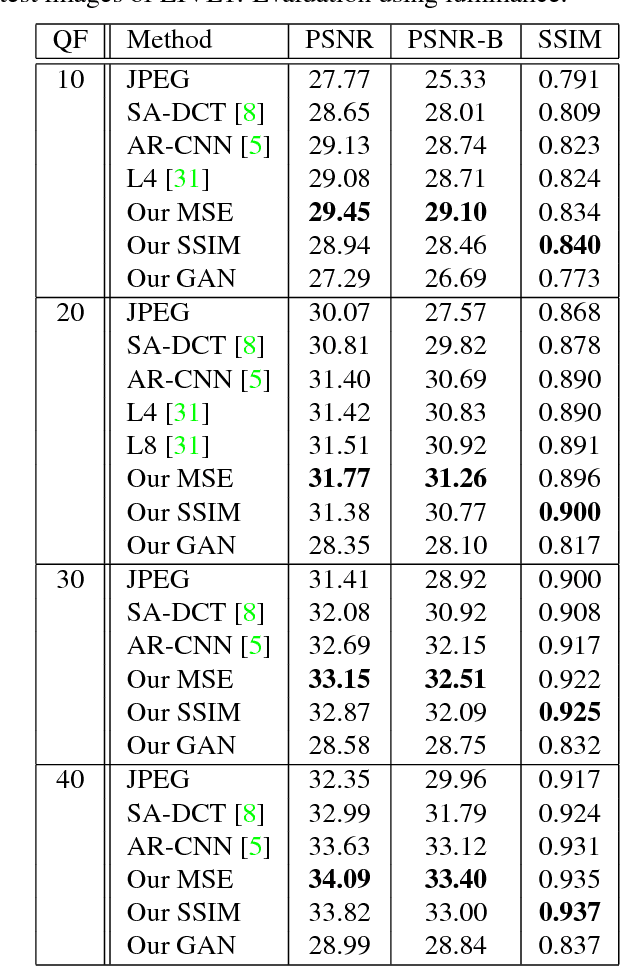Deep Generative Adversarial Compression Artifact Removal
Paper and Code
Dec 06, 2017



Compression artifacts arise in images whenever a lossy compression algorithm is applied. These artifacts eliminate details present in the original image, or add noise and small structures; because of these effects they make images less pleasant for the human eye, and may also lead to decreased performance of computer vision algorithms such as object detectors. To eliminate such artifacts, when decompressing an image, it is required to recover the original image from a disturbed version. To this end, we present a feed-forward fully convolutional residual network model trained using a generative adversarial framework. To provide a baseline, we show that our model can be also trained optimizing the Structural Similarity (SSIM), which is a better loss with respect to the simpler Mean Squared Error (MSE). Our GAN is able to produce images with more photorealistic details than MSE or SSIM based networks. Moreover we show that our approach can be used as a pre-processing step for object detection in case images are degraded by compression to a point that state-of-the art detectors fail. In this task, our GAN method obtains better performance than MSE or SSIM trained networks.
 Add to Chrome
Add to Chrome Add to Firefox
Add to Firefox Add to Edge
Add to Edge